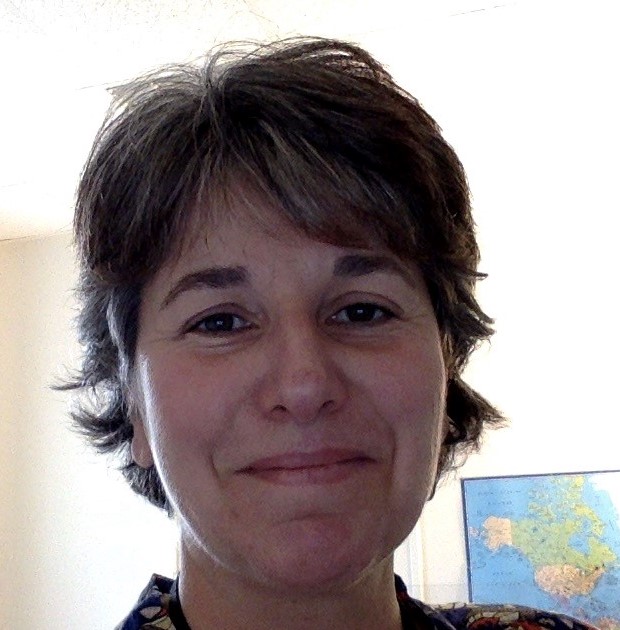Étudiants en échanges universitaires
A noter
Cette page s’adresse uniquement aux étudiants en programme d’échange.
Un étudiant d’échange est un étudiant venant étudier au sein de la Faculté des Lettres et Sciences Humaines (FLSH) dans le cadre d’un accord bilatéral établi entre son université d’origine et la FLSH .
Be careful
This page is only for exchange students or ERASMUS students.
An exchange student is a student coming to the Faculty of Arts and Humanities (FLSH) in the framework of a bilateral agreement signed between his (sending) university and the FLSH.
Comment candidater / How to apply ?
Il est impératif que votre établissement d’origine nous envoie un mail – – contenant les informations suivantes :
- nom de l’université d’origine (pays)+ code ERASMUS (le cas échéant) ;
- noms des étudiants sélectionnés ;
- adresse mail des étudiants ;
- domaine d’étude ;
- durée du séjour : année académique (septembre-juin) ou semestre d’automne (septembre-fin décembre) ou semestre de printemps (janvier-juin).
Cette information doit nous être communiquée :
- avant le 1er juin pour l’année académique et semestre d’automne
- avant le 1er novembre pour le semestre de printemps
Cette étape est obligatoire afin d’être accepté comme étudiant en échange.
L’étudiant recevra ensuite par mail les instructions pour procéder à sa pré-inscription.
Cette pré-inscription se fait en ligne (seulement les étudiants qui ont été nommés y auront accès). Ensuite, il faudra envoyer par email à les documents nécessaires.
Une fois arrivé à la FLSH, vous pourrez modifier votre learning agreement en cas de problème.
Le calendrier universitaire est disponible ici.
Pour vous inscrire, voici les documents à avoir :
- copie de votre passeport ou de votre carte d’identité et de votre visa étudiant (si vous ne venez pas d’un pays de l’Espace Schengen) ;
- copie de votre carte européenne d’assurance maladie ou de votre assurance maladie privée avec couverture en France qui couvre la totalité de votre séjour en France ;
- vos informations personnelles (nom, e-mail, durée de séjour, domaine d’études) ;
- votre formulaire de candidature en ligne.
Une fois que votre inscription à la FLSH est effectuée, on vous donnera
- votre carte d’étudiant qui vous servira de carte d’identité au sein de l’Université et qui comporte votre numéro d’étudiant. Cette carte vous servira aussi de carte de paiement au sein de l’Université (restaurant universitaire, etc), ainsi que votre certificat de scolarité ;
- votre compte internet FLSH et le mot de passe qui vous permettra d’accéder au réseau WIFI de l’Université et à l’espace numérique de travail.
Par ailleurs, vous pourrez nous fournir à ce moment votre attestation de présence à compléter et signer.
The student´s home university should send us an email –– with the following information:
- Home University (Country) + Erasmus Code if any
- Name of the selected students
- Student’s e-mail address
- Student´s Area of Study
- Duration of the stay: Academic year (September-June) or Winter Semester (September-January) or Spring Semester (January-June)
We need to have those information :
- before June 15 for academic year and autumn semester
- before November 15 for spring semester.
This step is crucial in order to be selected as an exchange student.
Once we have received your official nomination, you need to apply online (only students for whom we have received their nomination will be authorized to apply online).
For this online application, you will need to upload a learning agreement signed and sealed by the international coordinator of your home university.
Upon your arrival at FLSH, you can modify your learning agreement if there is any problem.
The calendar is avaliable here
Once you arrive in France, what you ought to do is go to FLSH in order to enroll yourself at FLSH. If one is not enrolled, then you will not be considered as international student.
1. Make sure that we have a copy of your passport or identification and your student visa (only if you are not European).
2. Turn in your original and a copy of your European health insurance or private medical insurance with coverage in France for the entire study period that you are anticipated to stay at FLSH.
3. Make sure that your personal information (name, email, months of stay, and anticipated field of study) is correct
4. Make sure that you have correctly completed the online student application for FLSH and that you have sent it.
5. You will receive your University of Limoges Student card which will serve as your university ID
6. You will receive your FLSH username and password which will allow you to access the University Wifi as well as other services.
7. If you need it, give us your attendance sheet to complete in order to return it ASAP at your home university.
Les cours / Courses
La Formation en Français Langue Étrangère s’adresse à tous les étudiants internationaux de l’Université de Limoges pour un perfectionnement en langue ou méthodologie universitaire. La formation assure des cours de langue et de civilisation françaises pour un public non francophone du niveau débutant à niveau expérimenté afin de se perfectionner en français et de découvrir la culture française.
Toutes les informations sur le site international de l’université.
Training in French as a Foreign Language is possible for all international students of the University of Limoges for an improvement in language or university methodology. The training provides French language and civilization courses for a non-French-speaking public from beginner to experienced level in order to improve their French and discover French culture.
All information on the university’s international website
Les liens utiles / Useful links
Bureau d'accueil International de l'Université de Limoges
Office de tourisme
Kit to start to Limoges
CONTACTS

